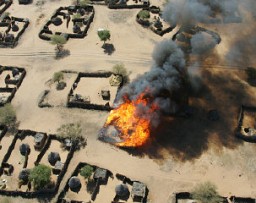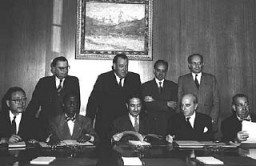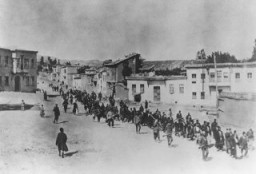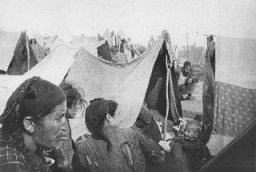<< Previous | Displaying results 1-10 of 188 for "Genocide" | Next >>
From April to July 1994, extremist leaders of Rwanda’s Hutu majority directed a genocide against the country’s Tutsi minority. Learn more

Key dates in the use of the term genocide as part of the political, legal, and ethical vocabulary of responding to widespread threats of violence against groups.

The term genocide refers to violent crimes committed against groups with the intent to destroy the existence of the group. Learn about the origin of the term.

The first conviction for the crime of genocide came after the 1994 genocide in Rwanda, when Jean-Paul Akayesu was found guilty of genocide and crimes against humanity.

After the Holocaust, the IMT charged the first case of “incitement to genocide.” Learn more about the crime and its application in modern genocide law.

Explore an outline of the main definitional elements of the crime of genocide and how significant aspects of the law have developed through recent cases.

The Armenian genocide (1915–1916) is sometimes called the first genocide of the twentieth century.

Learn more about the Armenian Genocide, which was the physical annihilation of ethnic Armenian Christians living in the Ottoman Empire between 1915-1916.

Mass atrocities and genocide are often perpetrated within the context of war. Learn more about World War I and the Armenian genocide.

Learn about the history of discrimination against Roma in Europe and how the Nazi regime committed genocide against European Roma during WWII.

We would like to thank Crown Family Philanthropies, Abe and Ida Cooper Foundation, the Claims Conference, EVZ, and BMF for supporting the ongoing work to create content and resources for the Holocaust Encyclopedia. View the list of donor acknowledgement.